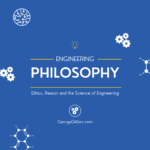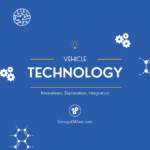New Applied Philosophy – Craft Advanced Tech

New Systems Engineering:
Introduction – Applied Philosophy as a Holistic approach to Business Goals in New Product Development
Continuing on the topics covered in earlier publications, in the contemporary corporate practices of new product development, success should be based not only on innovation and efficiency but also on a holistic approach. Generally, method that integrates ethical considerations and quality assurance. Furthermore, building upon the foundational principles of Applied Philosophy, this article emphasizes the importance of adhering to Objectivist principles in navigating the complexities of product development. In addition, this is applicable to the corporate environment in establishing business goals that prioritize the creation of ethical, high-quality goods for public consumption.
Moreover, in the pursuit of ethical business practices, several fundamental questions arise. Key Considerations for Ethical Business Practices:
- Primarily, consumer Demand: Understanding the desires of consumers is crucial. What products do they truly want, and how can these desires be translated into viable offerings that resonate with target audiences?
- Secondly, marketability: Beyond consumer demand, assessing the marketability of a product is essential. What factors influence its appeal in the marketplace, and how can businesses optimize strategies to maximize sales potential?
- Additionally, performance Assurance: In an era where government initiatives and regulatory pressures shape product requirements, maintaining a commitment to quality is paramount. How can businesses ensure that their products meet rigorous standards of reliability, durability, and safety?
- Finally, user Experience: A seamless user experience is integral to ethical business practices. How can businesses mitigate post-production challenges, such as unexpected maintenance costs or environmental considerations, to enhance user satisfaction and loyalty?
Applied Philosophy - Translation of the Business Goals the New Vehicle Content
Conversely, businesses often face the pivotal decision of whether to follow market trends and embrace advanced technologies. Consequently, this transition necessitates leveraging newly available government requirements and protocols to align with industry standards and meet consumer demands. Generally, the following observations can be made:
- Generally, Scope of Regulatory Requirements: While NHTSA requirements are created by limited research, they often address a narrow-scoped definition, leaving room for interpretation and implementation challenges
- Sequentially, translation of Requirements: Directly applying regulatory language to the scrutiny of requirements poses a challenge for OEMs and their supply chain partners. Consequently, the responsibility lies with the OEMs to develop and allocate requirements to subsystem levels, ensuring clarity and alignment across the assembly
- Furthermore, Requirement Development and Allocation: OEMs play a crucial role in developing comprehensive requirements and allocating them to subsystems, laying the groundwork for creating statements of requirements for each of the involved commodities of total assembly
- Moreover, Failure Mode Analysis: followed by the requirement generation (documentation and knowledge sets), conducting failure mode analysis is imperative for assessing the performance and reliability of executing systems and subsystems, mitigating risks and ensuring product integrity
In addition, recent data on warranty, service, and safety recalls underscore the complexity of assembly in advanced vehicle development. This complexity highlights the need for enhanced engineering depth and rigor throughout the development process to prevent issues and uphold quality standards.
Development of the Requirements – Comprehensive knowledge generation – addressing the Metaphysics and Epistemology, Considering Corporate Ethics at the Highest level
Continuing on the above topic, the “preliminary” engineering work must be supplemented by the development of two major elements and included into the corporate strategy:
- Preparing the working physical prototype, which can be tested with the available technology (when ready)
- Development of the simulation tools, capable to address the new product functions
Notes for the function intended to do some computations related to the decision making, based on the vehicle and or occupants’ behavior:
- Generally, the producer better be capable to simulate the same conditions via some type of approximation
- Creating the simulation capabilities with the same speed of calculations of real time applications
- Addressing the verification of the intended product function
Summarizing philosophical relevancy, capability to produce certain level of complexity (engineering Metaphysics) does not negate the fundamental understanding of: “How do we know it works?” (Epistemology), as evidence shows lack of comprehension of failure modes, as well as no evidence of evaluation / validation of conditions at which the failures take place (lack of corporate Ethics).
Development of the Corporate Strategy related to the New Vehicle Content - Addressing the Aesthetics, as Continuous Improvement Philosophy
It is important to note that all three disciplines aligned in this discussion (Corporate / Business practices, Systems Engineering and Objectivist Philosophy) intend to facilitate all of the elements of the development simultaneously. Consequently, this brings the edge to the proposed “Applied Philosophy”, as it emulates reality.
Sequentially, with a superior product at its core and a thorough addressing of pertinent concerns, the corporate approach can effectively continuously improve by implementing the following strategies:
- Software Optimization: Leveraging advanced software technologies to enhance the functionality of vehicle systems
- Calibration Optimization: Fine-tuning calibration processes to achieve optimal performance and integrity
- Sensors Scalability: Designing scalable sensor systems that can adapt to different product variants, ensuring same physical content across the product line
- Streamlining Development Costs: Implementing cost-effective measures to streamline the total product development process
- Standard Interfaces and Best Practices: Establishing standardized interfaces and best practices to maintain coherence and efficiency in design implementation
Furthermore, by incorporating these initiatives into the corporate strategy, organizations can uphold the principles of Applied Philosophy while achieving excellence for new vehicle content.
Development of the Corporate Strategy related to the New Vehicle Content - Addressing Corporate Politics
Finally, the “Politics” in the Objectivist Applied Philosophy is defined as: “what to do with the developed product”. Consequently, let’s address the corporate opportunity related to it:
- Vehicle Content Strategy: Tailoring saleable packages for each family of products ensures alignment with consumer preferences and market demands, optimizing sales potential.
- Regional Sales Strategy: Crafting a strategic approach to deliver specific content to different geographical regions and consumer segments enhances market penetration and customer satisfaction.
- Sensor Set Strategy: Adjusting sensor capabilities based on market segments allows for flexibility in product offerings, ranging from basic to luxury features, while considering calibration capabilities.
- Algorithm Development: Customizing function algorithms based on intended vehicle content enables the delivery of basic or advanced features, catering to diverse consumer needs and preferences.
- Regional Supply Base Optimization: Developing comprehensive requirements and understanding failure modes facilitate the creation of subsystem statements of requirements, enabling local sourcing of suppliers in sales regions. This localized supply base reduces reliance on global supply chains, mitigating risks and optimizing cost savings for producers.
Conclusion – Applied Philosophy is a Comprehensive Approach for the Ethical Corporate Behavior for the Creation of Public Goods and Services
In conclusion, Applied Philosophy offers a comprehensive framework for achieving success in new product development by integrating ethical considerations with market demands and performance objectives. By embracing Objectivist principles and prioritizing ethical business practices, organizations can not only thrive in the competitive marketplace but also contribute positively to society as a whole.
In addition, Applied Philosophy serves as a guiding set of principles in translating business goals into actionable strategies for navigating the complexities of advanced vehicle development. By embracing philosophy and adopting a meticulous approach to requirement development, allocation, and failure analysis, businesses can effectively address challenges and deliver innovative, reliable vehicles that meet consumer expectations and regulatory standards.
Consequently, the development of requirements in vehicle systems engineering necessitates a holistic approach that integrates knowledge generation, metaphysics, epistemology, and corporate ethics. By embracing Applied Philosophy and prioritizing ethical corporate practices, organizations can navigate the complexities of development with integrity and purpose, ultimately delivering innovative and reliable vehicles that meet the highest standards of quality and ethics.
Finally, the development of corporate strategy for new vehicle content presents opportunities to leverage Objectivist Applied Philosophy in addressing corporate politics. By strategically aligning vehicle content, sales strategies, sensor capabilities, algorithm development, and supply chain optimization, organizations can navigate corporate politics effectively while maximizing profitability and market competitiveness. Embracing Applied Philosophy empowers companies to make informed decisions that drive success in the dynamic automotive industry landscape.
References
https://georgedallen.com/develop-new-system-content-proposal-craft-advanced-tech/
https://georgedallen.com/new-systems-engineering-as-applied-philosophy-of-objectivism/
https://en.wikipedia.org/wiki/Engineering_ethics
https://georgedallen.com/upholding-objectivist-principles-navigating-basic-engineering-ethics/
https://georgedallen.com/new-engineering-ethics-fundamentals-of-product-development/
About George D. Allen Consulting:
George D. Allen Consulting is a pioneering force in driving engineering excellence and innovation within the automotive industry. Led by George D. Allen, a seasoned engineering specialist with an illustrious background in occupant safety and systems development, the company is committed to revolutionizing engineering practices for businesses on the cusp of automotive technology. With a proven track record, tailored solutions, and an unwavering commitment to staying ahead of industry trends, George D. Allen Consulting partners with organizations to create a safer, smarter, and more innovative future. For more information, visit www.GeorgeDAllen.com.
Contact:
Website: www.GeorgeDAllen.com
Email: inquiry@GeorgeDAllen.com
Phone: 248-509-4188
Unlock your engineering potential today. Connect with us for a consultation.


